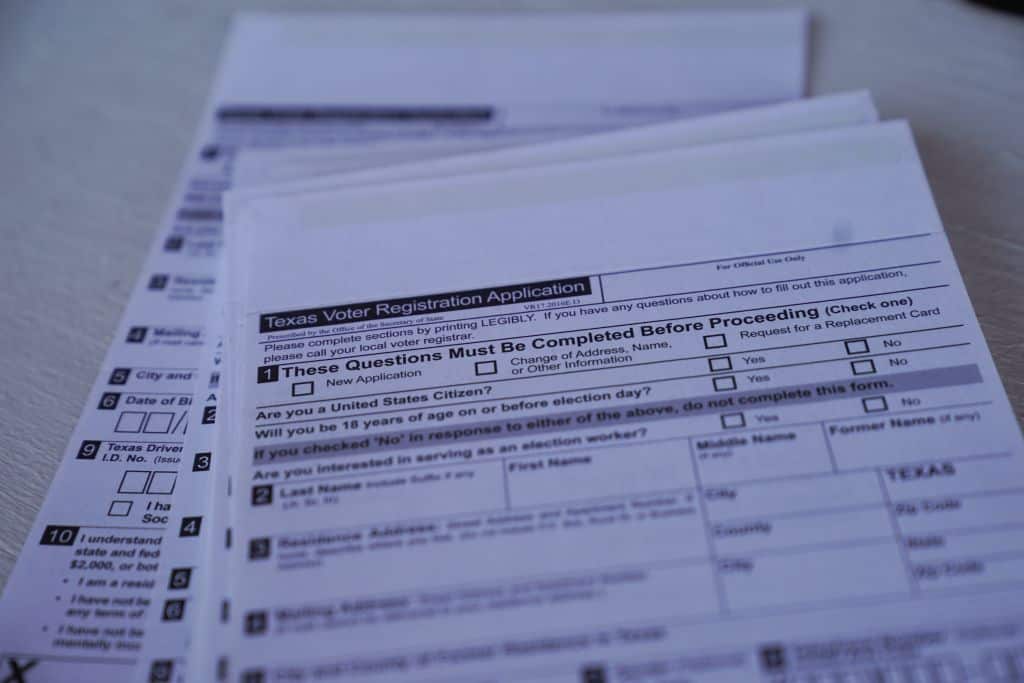The 2020 Census has been hammered by a myriad of threats including the Trump administration’s attempt to add a citizenship question, the COVID-19 pandemic, and now, the latest missive from the Census Bureau: the cessation of counting on September 30, a month ahead of schedule. The latest risk to a complete census has prompted outrage from lawmakers and organizations, as they maintain an undercount will have dire ramifications, especially in Texas.
The halting of counting on September 30 puts an end to in-person visits, and outreach that occurs online or over the phone. The current census response rate in Texas is below the national average, according to a tracker from the Census count. Texas has a response rate of 60.1 percent, while the national average is at 64.7 percent.
Undercounted populations for the census have traditionally included communities of color, renters, immigrants and those in rural or remote locations. In Texas, a number of leaders, particularly in the Hispanic community, are warning about the effects of an undercount. Since 2010, Texas has been on track to add 3.8 million additional residents (half of whom are Latino). A census undercount could drastically reduce that estimate.
Last week, the Congressional Hispanic Caucus, the Congressional Black Caucus, and the Congressional Asian Pacific American Caucus, released a Tri-Caucus Chairs’ statement denouncing the shortened Census outreach. “From our perspective, the Trump administration is doing everything in its power to decrease representation and reduce resources for people of color through an incomplete and inaccurate Census count,” said the Tri-Caucus.
The Congressional caucuses also accused the Census Bureau of refusing to meet with its leaders on Capitol Hill. After that accusation, the Census Bureau confirmed they would be meeting with leaders of the Tri-Caucus this week.
Rep. Joaquin Castro, Chair of the Congressional Hispanic Caucus, provided a comment to the Signal. “It’s clear the Trump administration has no intention of fulfilling its constitutional obligation of a complete and accurate count of the U.S. population. And right now, only about 3 in 5 Texas have completed their Census, which could result in less representation for Texas residents and fewer resources for our communities. An undercount will hurt our most vulnerable residents the hardest.”
Like many Texas lawmakers, Castro encourages people who haven’t filled out their census to visit the website 2020census.gov. “This simple act that takes less than 5 minutes will direct federal funding to your community and determine your representation over the next 10 years,” he said in his comment to the Signal.
Rep. Castro also noted the U.S. House approved extensions to delivery of census data, requested by the Census Bureau, by 120 days in the Heroes Act, which was passed by their chamber in May. The U.S. Senate has not taken up the Heroes Act, which also includes economic relief for persons and families affected by COVID-19.
The census has been in the crosshairs of the Trump administration since the Department of Commerce, which oversees the constitutionally mandated decennial count, announced they would be adding a citizenship question. In a 5-4 decision, the Supreme Court ruled against the Trump administration’s efforts, with Chief Justice John Roberts siding with the liberal judges.
Ignoring the ruling, the White House distributed a memo in July to states calling for them to exclude undocumented immigrants from their final count. That move was blasted by Speaker Nancy Pelosi and several Democratic members of Congress, including Texas Rep. Vicente Gonzalez, who in a statement called the move “a distraction intended to divert Americans’ attention away from Mr. Trump’s failings as president.”A survey from the George Washington Institute of Public Policy, showed that even a 1 percent undercount in Texas, would cost the state over $290 million in federal funding over 10 years. An undercount also jeopardizes the number of additional congressional seats Texas was likely to gain after a complete 2020 census.
Photo: Bill Oxford/Getty Images
A longtime writer and journalist, Jessica was thrilled to join the Texas Signal where she could utilize her unique perspective on politics and culture. As the Features and Opinion Editor, she is responsible for coordinating editorials and segments from diverse authors. She is also the host of the podcast the Tex Mix, as well as the co-host for the weekly SignalCast. Jessica attended Harvard College, is a onetime fitness blogger, and has now transitioned to recreational runner (for which her joints are thankful).





